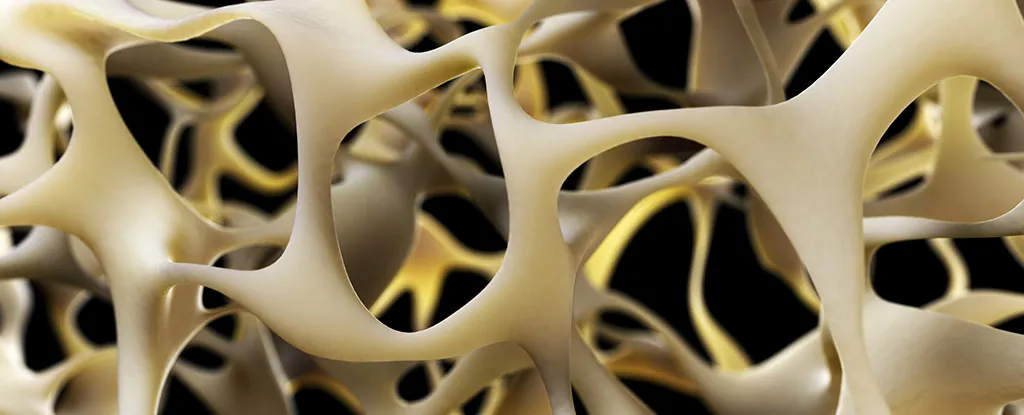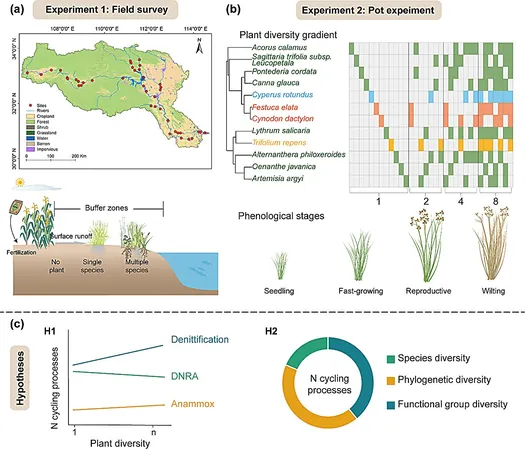
Revolutionary Discovery: Could New Treatment Rebuild Bones and Combat Osteoporosis?
2025-09-21
Author: Amelia
A Game-Changer for Bone Health?
A groundbreaking study reveals an exciting new avenue for combating osteoporosis, the bone-weakening disease that affects millions across the globe. Scientists have pinpointed a vital mechanism that could be the key to strengthening bones.
The Mysterious Receptor Behind Bone Strength
Led by researchers from the University of Leipzig in Germany and Shandong University in China, the study focuses on a cell receptor known as GPR133 (or ADGRD1). This receptor plays a crucial role in regulating bone density through the activity of bone-building cells called osteoblasts.
Unlocking the Secret: Gene Variations and Bone Density
Previous research indicated that variations in the GPR133 gene are linked to bone density. With this in mind, the scientists zeroed in on the specific protein coded by this gene.
Mice Experiments: A Glimpse into the Future
In a series of experiments involving mice, the researchers manipulated the presence of the GPR133 gene. Mice lacking this gene exhibited weak bones, mirroring the symptoms of osteoporosis. However, when researchers introduced a chemical agent called AP503 to activate the receptor, they witnessed a dramatic increase in bone production and strength.
Harnessing a Chemical Boost for Bones
Biochemist Ines Liebscher from the University of Leipzig stated, "AP503 acts like a biological switch, energizing osteoblasts to enhance bone strength. We observed significant improvements in both healthy and osteoporotic mice." Remarkably, this chemical also appeared to enhance the benefits of exercise for stronger bones.
A Promising Path for Human Treatments
While the findings are based on animal studies, researchers believe similar biological processes may exist in humans. "Impairment of the GPR133 receptor in mice leads to early signs of bone density loss, much like osteoporosis in people," Liebscher added.
The Future of Bone Health
Future therapeutic applications could not only strengthen healthy bones but also rebuild degraded bone, providing hope for those suffering from osteoporosis, particularly post-menopausal women.
Osteoporosis: A Global Health Challenge
Osteoporosis is a significant health issue affecting countless individuals worldwide. While current treatments can slow the progression of this disease, they do not offer a cure and may carry side effects that increase the risk of other illnesses.
The Bright Future of Bone Health Research
With the discovery of GPR133's role in bone strength, scientists are optimistic about developing new strategies to prevent osteoporosis. Molecular biologist Juliane Lehmann emphasizes, "This receptor presents vast potential for medical applications, particularly for our aging population. The road to healthier bones starts here!"









 Brasil (PT)
Brasil (PT)
 Canada (EN)
Canada (EN)
 Chile (ES)
Chile (ES)
 Česko (CS)
Česko (CS)
 대한민국 (KO)
대한민국 (KO)
 España (ES)
España (ES)
 France (FR)
France (FR)
 Hong Kong (EN)
Hong Kong (EN)
 Italia (IT)
Italia (IT)
 日本 (JA)
日本 (JA)
 Magyarország (HU)
Magyarország (HU)
 Norge (NO)
Norge (NO)
 Polska (PL)
Polska (PL)
 Schweiz (DE)
Schweiz (DE)
 Singapore (EN)
Singapore (EN)
 Sverige (SV)
Sverige (SV)
 Suomi (FI)
Suomi (FI)
 Türkiye (TR)
Türkiye (TR)
 الإمارات العربية المتحدة (AR)
الإمارات العربية المتحدة (AR)